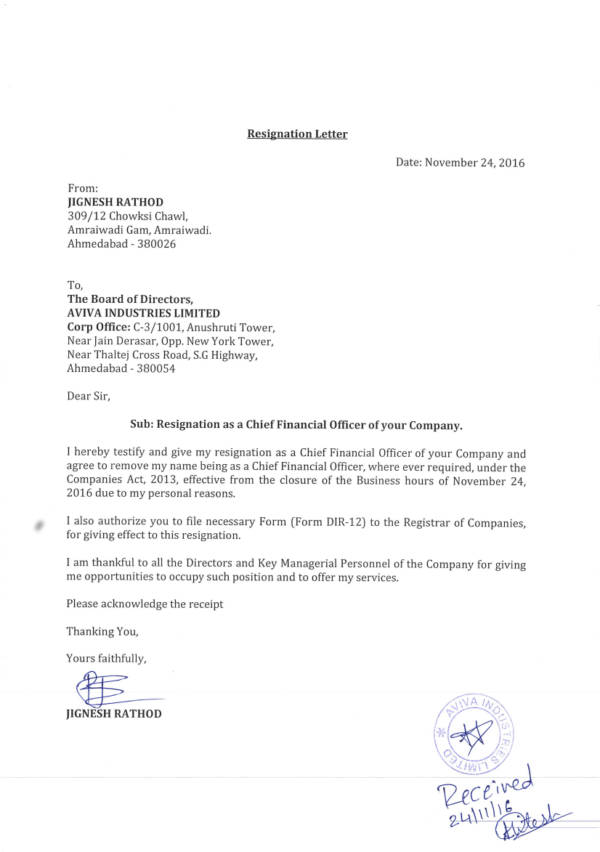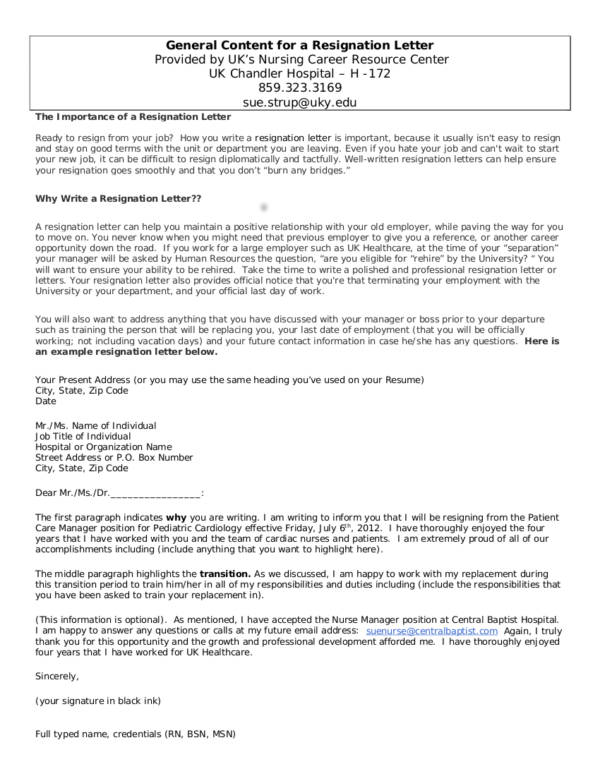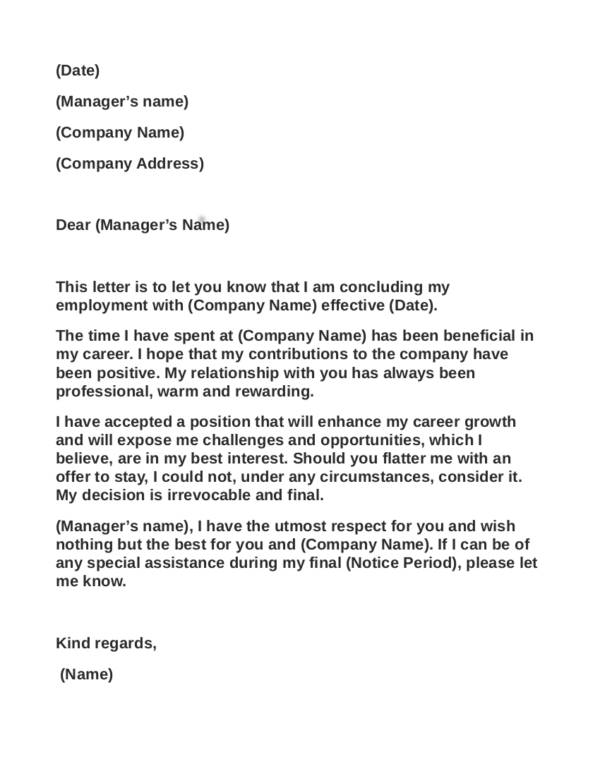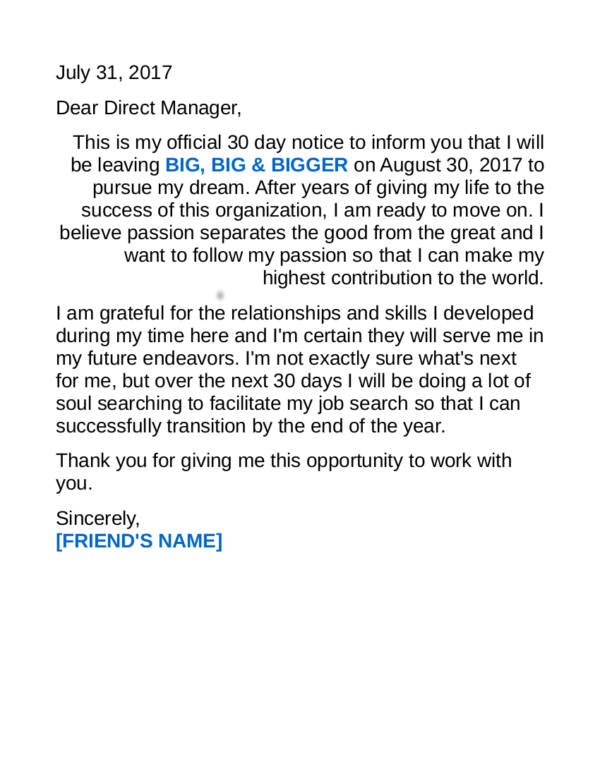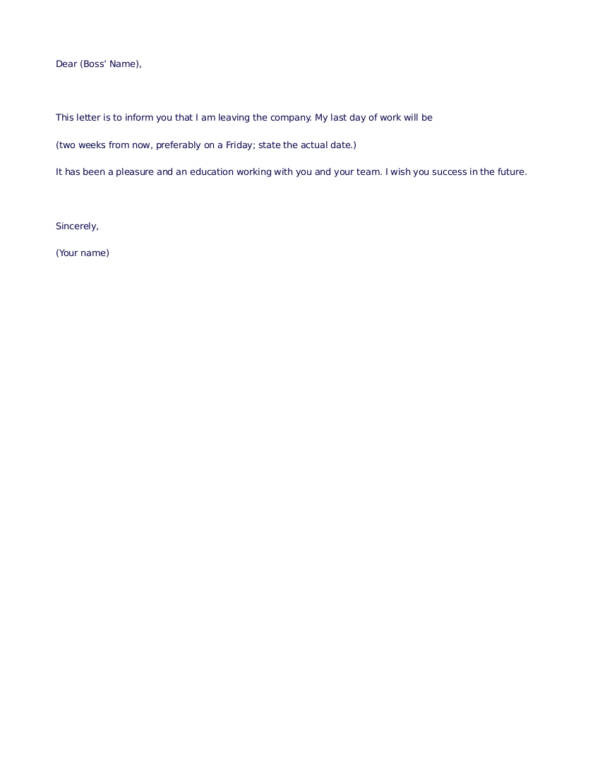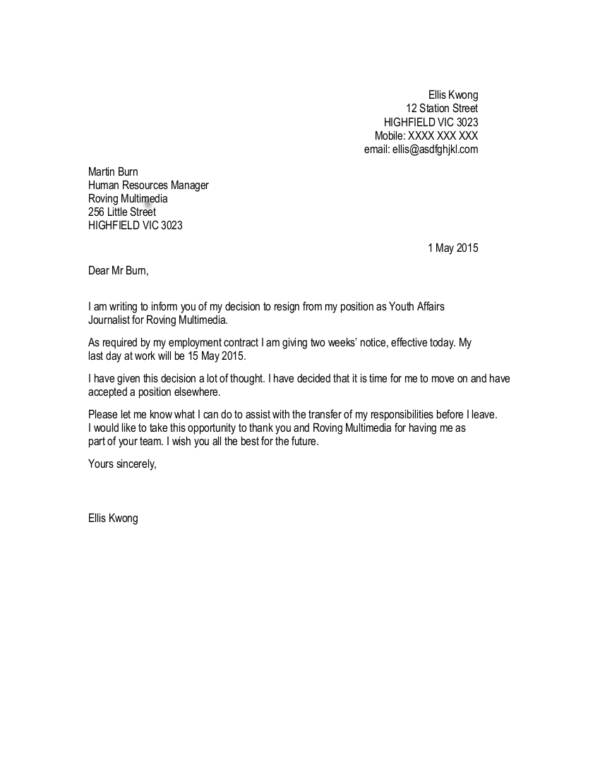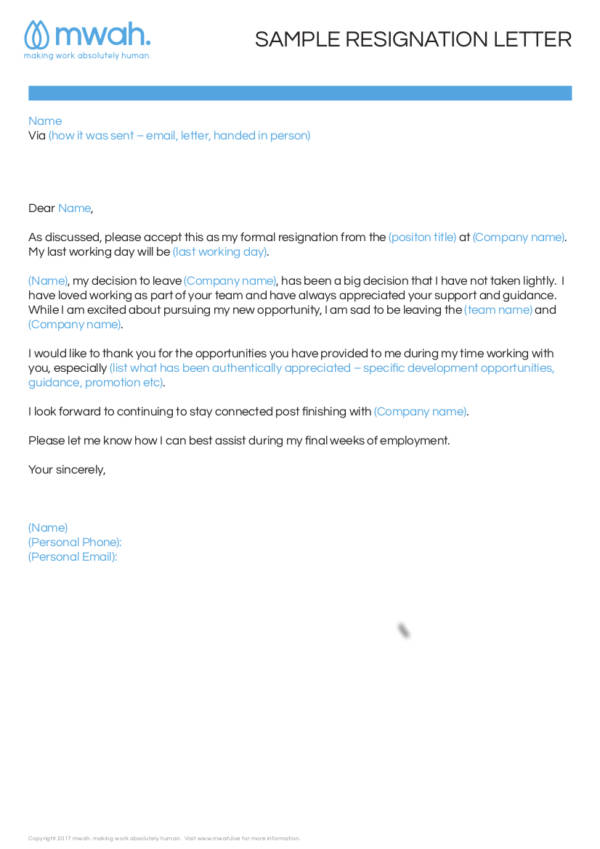If you are leaving your job due to unfavorable circumstances, it may be tempting to leave a flaming trail of spite and promise of retribution to those colleagues and even your boss who has wronged you. While this may give you a sense of emotional satisfaction, it is, however, unwise to hand in a resignation letter that reeks of anger or sarcasm. You have to remember that the rule of thumb when writing resignation letters is professionalism. Now, this unspoken rule is not practiced for mere arbitrary reasons. In fact, there are several reasons why you must maintain your professionalism when writing a resignation letter. Perhaps the most vital reason for such lies in the fact that you may need your boss or colleagues to write a recommendation letter for your future job prospects. Hence, you should not go and burn bridges just yet.
Another reason why you must draft a formal resignation letter is your reputation as a worker. Before you know it, word would go around among fellow professionals in your industry regarding your attitude as an employee in your current workplace. Hence, you must be careful that your resignation letter would only contain those information that are necessary and leave out all the inessential information. In this article, we are giving you a quick list of things you need to avoid when writing a resignation letter.
Resignation Letter Sample
Generic Resignation Letter
Final Resignation Letter
30 Days Notice Period Resignation Letter
Not Observing a Notice Period
Read your employment contract and your company’s rules and policies pertaining to the notice period observance requirement. More often than not, companies require their employees to observe a notice period. However, if it is not stipulated in your employment contract, then you must still strive to render at least two weeks notice. When you are able to tell your boss that you are observing a notice period, he/she would be less worried or anxious about your departure since you have given your boss enough time to look for someone who can replace you when you go.
Focusing on the Reason for Resignation
Several employees make the mistake of making their resignation letter all about the “why” of their resignation, when in fact, that is not what their bosses are interested in. Your boss would want to know the specific date when you will resign, as well as the details of your resignation such as the length of the notice period and how you plan on turning over your tasks to your replacement. Matters concerning the effects of your resignation to your company’s workflow or business operations are of greater value to your boss than the why of your resignation. So keep your letter’s content on the right track by thinking about what your boss actually wants to know instead of gloating over the fact that you are leaving your company for a better one.
Over-Explaining Why You Want to Resign
You are under no obligation to explain the details of the reason why you are resigning. It is enough that you are able to share with your boss a rational reason for resignation. This rule must especially be followed if the reason why you are leaving your job is due to your conflict with your boss or with your coworker. In such cases, you must avoid explaining as much as you can, even if it means you have to be vague in your reason for resignation. In addition to this, you must avoid telling your boss your future career plans and which company you are planning to work after your resignation.
Blaming Your Boss
It doesn’t matter if your bitterness toward your boss is justifiable; the primary rule is to never blame your boss. If you know it in your heart that your boss’s mismanagement is the reason why you are leaving, then it is best to keep that information to yourself. Your resignation letter is not the proper mode for you to express your criticisms about your boss. If you really want to give them a piece of opinion because you are genuinely concerned about the company’s growth and advancement, then you may politely request your boss for an exit interview. When you won’t go and blame your boss, he/she would take this a sign of your professionalism and commendable attitude. In turn, this may help you avoid burning bridges with your boss whom you may need to write a recommendation letter on your behalf for your future job prospects.
Simple Letter of Resignation
Resignation Letter for Personal Reasons
Resignation Letter with Notice Period
Thankful Resignation Letter
Talking Negatively about Your Colleagues
Office politics is inherent in every company. While your experience of office conflict may or may not be worse than others’, this does not give you an excuse to talk badly about your colleagues (especially the ones you have misunderstandings with). At this point that you have finally decided to resign, you are no longer tied to your colleagues and your best move would be to move forward. If you write negative things about your colleagues in your resignation letter, this would not benefit anyone and your boss would find your inclusion of such a petty information a mere nuisance.
Forgetting to Express Your Gratitude
No matter how brief or conflict-ridden your stay in your company may have been, there most certainly is some sort of learning that you have obtained from working there. That is why you have to tell your boss exactly how thankful you are for the opportunities being given to you. If you can, specify the incidents that you are thankful for and narrate how you are able to learn certain skills from such incidents. This would greatly encourage your bosses to provide similar opportunities to the colleagues you have left behind.
Using Informal Language
Resignation letters are formal letters that are sent with a formal function. Hence, you must always remain polite in your resignation letter. Avoid using expletives and name-calling. You are writing it for the purpose of informing your boss and certainly not to give a lecture on how your boss or colleagues have wronged you. By maintaining a professional tone in your letter, you are able to send a message that you are seeking to move forward and that you don’t hold any grudges against your company or colleagues. As a result, you are better able to keep a good relationship with your boss even after you have resigned from your job.
Now that you have a clear idea of the things you have to avoid when writing a resignation letter, we hope that you are able to draft a letter that resonates with positivity and formality. Go ahead and write your resignation letter now! For more information on how to resign the proper way, you may read up on our website’s articles discussing the specific steps you can take before sending a resignation letter.
Related Posts
Resignation Letter for Medical Samples & Templates
Letter of Intent Samples & Templates
Letter of Intent for a Job Samples & Templates
Lease Proposal Letter Samples & Templates
Letter of Inquiry Samples & Templates
Character Reference Letter Samples & Templates
Claims Letter Samples & Templates
Response Letter Sample & Templates
Follow Up Letter Samples & Templates
Sample Project Proposal Letter Templates
Donation Letter Samples & Templates
Addressing a Formal Letter Samples & Templates
Grievance Letter Samples & Templates
Sample Sponsor Thank You Letter Templates
Sample Letters of Request

